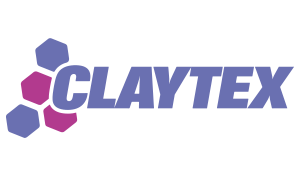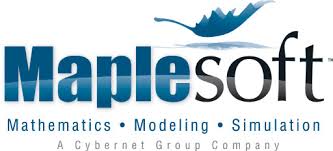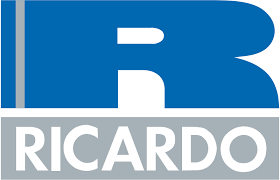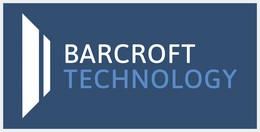
The 2nd American Modelica Conference 2020 - Virtual Conference
About the Conference
Conference Program, Proceedings, Papers and Presentations
The conference program, proceedings, papers, presentations and book of abstracts are available here:
- Conference Program: click here (redirects to another site).
- Book of Abstracts: click here to download (single .pdf file).
- Proceedings: click here to download (single .pdf file) or download from LiU Electronic Press.
- Papers: click here to download individual papers or download from LiU Electronic Press.
- User Presentations: click here to download the individual presentations.
Important Update: American Modelica Conference converted to Online Conference due to Coronavirus
The American Modelica Conference 2020 will be held online from September 22nd to September 24th with all times in US Mountain time as our original location in Boulder. It is organized by the Modelica Association and the North American Modelica User Group NAMUG.
The Modelica Conference is the main event for users, library developers, tool vendors and researchers to share their knowledge and learn about the latest scientific and industrial progress related to all of the system simulation standards developed and maintained by the Modelica Association, in particular Modelica, the Functional Mockup Interface (FMI), the System Structure and Parameterization (SSP) standard and the The Distributed Co-simulation Protocol (DCP) standard.
The program will cover modeling of complex physical and cyber-physical systems, as well as tools, for a wide range of research and industrial applications. All contributions are peer-reviewed and selected by the Program Committee. This conference is co-organized by NAMUG, the North American Modelica Users’ Group, and the Modelica Association.
This conference will have one or several conference tracks with presentations of peer-reviewed papers as all Modelica conferences, but it will, in addition, have one track of industrial user-oriented presentations as user meetings by NAMUG have had for the last 5 years, that does not need to be accompanied by a full scientific paper. The abstracts of the presentations will also be peer-reviewed by the conference board.
We are looking forward to seeing you in Boulder, CO.
Dr. Michael Tiller and Associate Professor Luigi Vanfretti, PhD
General Chair (Ricardo) and Program Chair (Rensselaer Polytechnical Institute)
Conference Venue - Event App Download
We are using Whova as our Virtual Conference Management app. Whova is a powerful tool that can make the Virtual Conference experience much more informative and enjoyable. We will provide a brief run-through of the layout of Whova and how you can use it to get the most out of the conference. Also, we will contact you and talk through some basics of how to maximize the audio and video quality of your pre-recorded presentation, if you are presenting.
Please look at instructions (video and text) for Whova on your phone or as web-app to find the best option for you. If you are presenting, expect a email from us regarding the pre-recording of your presentation. Get our official conference app.

iOS Android For Blackberry or Windows Phone, Click here For feature details, visit Whova
The conference will take place as an online event now. The web-app link for any browser. More Details about the platform will be mailed to participants in time for the event. The Book of Abstracts, including the original program of the cancelled event in Boulder, is now available for download.
Call for Papers
Please see the Call for papers for further information about the submission and/or application process and the submission templates. All submitted papers will be peer-reviewed by the conference Program Committee (3 reviews per paper). The conference proceedings will be published electronically. After the conference, the proceedings will be available online. Authors keep the copyright for their papers and just provide non-exclusive publication rights to the Modelica Association.
The conference proceedings will be published by the Modelica Association on its website and by Linköping University Electronic Press. Each paper will be individually referenced by a DOI.
The authors of the 10% top papers submitted to the conference will be invited to submit an extended version after the Conference, for inclusion in a special issue of an open-access, ISI-referenced journal. Please note that the extended papers will undergo a full peer-review process which is independent of the one of the Modelica Conference.
Presentations
The presentations at the conference will be 15 minutes of presentation time with 5 minutes for questions for all papers. Questions and Answers sessions will be done at the end of 3-paper sessions to better fit the online nature of the conference.
Free Modelica Workshops
The North American Modelica Users’ Group, NAMUG, will organize free Modelica workshops on Monday. The workshop schedule will be determined soon and posted here. If you are interested in attending one of these workshops, please select “Workshop Ticket” on the Eventbrite site of the conference. We will add information on this site when we have enough participants, and inform all who expressed interest via email. These workshops also include “hands-on-tutorial or exercise” sessions aiming to support beginners in the Modelica language and the FMI standard.
Exhibition and Sponsorship
Sponsors for the online event:
Platinum Sponsor
Gold Sponsors







Silver Sponsors

Scope of the Conference
The Modelica Association (MA) develops, maintains and promotes related and interoperable standards in the domain of systems modeling and simulation. All Modelica standards are freely available from their respective websites, and all standard development projects are open for contributions by interested parties. Compliance and interoperability are important values of the MA and the MA supports tools and infrastructure to make compliance of tools transparent. Open source and commercial implementations of the standards are equally encouraged.
Modelica is a freely available, equation-based, object-oriented language for convenient and efficient modeling of complex, multi-domain cyber-physical systems described by ordinary differential, difference, and algebraic equations. The companion Modelica Standard Library has been utilized in demanding industrial applications, including full vehicle dynamics, power systems, robotics, hardware-in-the-loop simulations and embedded control systems with nonlinear Modelica models.
The Functional Mockup Interface (FMI) is a freely available standard for the tool-independent exchange of models and for co-simulation. It is supported by many Modelica and non-Modelica tools and is the key to utilize Modelica models in non-Modelica environments.
System Structure and Parameterization (SSP) standard describes in a logical way how model components are connected and possibly (hierarchically) composed into composite components, as well as how model parameterization data is stored and exchanged between them. The SSP is compatible to the FMI by design
The Distributed Co-simulation Protocol (DCP) standard is an application level communication protocol. It is designed to integrate models or real-time systems into simulation environments. It enables exchange of simulation related configuration information and data by use of an underlying communication system (such as UDP, TCP, or CAN). At the same time the DCP supports the integration of tools and real-time systems from different vendors. The DCP is compatible to the FMI by design.
The Modelica conference will bring together people using any of the Modelica Association standards for modeling, simulation, and control applications, Modelica language designers, Modelica and/or FMI tool vendors and Modelica library developers. It provides Modelica users the opportunity to stay informed about the latest standards, library, and tool developments, and to get in touch with people working on similar modeling problems. The conference is planned for about 150 participants and will cover topics such as the following:
-
Multi-engineering modeling and simulation with Modelica
-
Free and commercial Modelica libraries (mechanics, electrical, hydraulics, thermal, fluid, media, chemical, building, automotive, aircraft, …)
-
Automotive applications
-
Thermodynamic and energy systems applications
-
Mechatronics and robotics applications
-
Other industrial applications, such as electric drives, power systems, aerospace, etc.
-
Real-time and hardware-in-the-loop simulation
-
Simulation and code generation for embedded control systems
-
Applications of Modelica for optimization and optimal control
-
Modelica modeling, simulation and design tools
-
Symbolic algorithms and numerical methods for model transformation and simulation
-
New features for future Modelica versions
-
Modelica in other application areas (mathematical programming, databases etc.)
-
Modelica for teaching and education
-
New features of future FMI versions
-
FMI in Modelica and non-Modelica applications and tools
-
Tools and applications using the SSP standard
-
Tool and applications using the DCP standard
-
Digital Twins based on MA technologies.
In addition, the conference will include:
-
Modelica tutorials for different levels of modeling experience
-
Vendors’ presentations of commercial and free Modelica tools
-
Vendors’ exhibition
Registration
Registration and pricing are now posted at Eventbrite. Please wait until further information will be provided with registrations, we need to determine the best way to handle existing tickets from the cancelled in-person event.
Conference Board
- Conference Co-Chair Dr. Michael Tiller, Ricardo
- Conference Co-Chair Dr. Hubertus Tummescheit, Modelon
- Program Chair Prof. Luigi Vanfretti, Rensselaer Polytechnic Insitute
- Conference Excecutive Coordinator Dr. Christopher Laughman, Mitsubishi Electric Research Laboratories
- Local Co-Chair Prof. Wangda Zuo, University of Colorado Boulder
- Local Co-Chair Jessica Stershic, University of Colorado Boulder
- Dr. Michael Wetter, Maplesoft
- Paul Goosens, Maplesoft
- Behnam Afsharpoya, Dassault Systemes
